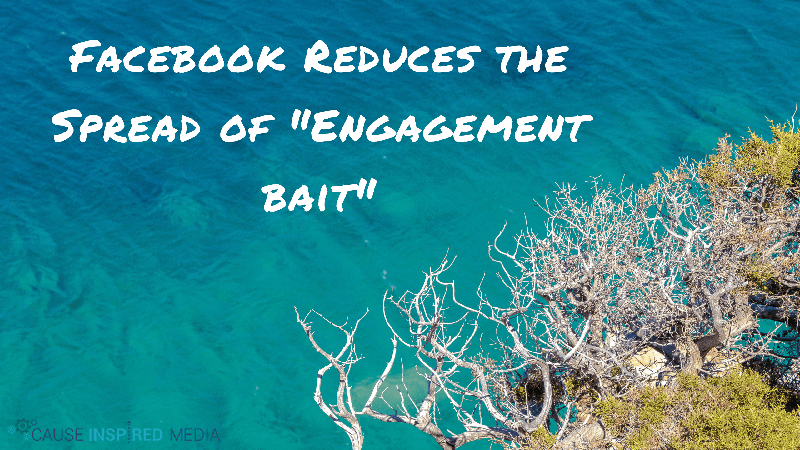Facebook Reducing The Spread of “Engagement Bait”
If you’re one of Facebook’s 1 Billion+ users, you have likely been annoyed by posts desperately trying to encourage users to “share” or “like” the content. These can include posts saying, “One like equals one prayer!” or “Tag someone who loves pizza!” Well, after last week, you will be glad to know that these posts will appear less frequently in your news feed.
Facebook refers to these posts as “engagement bait.” These are posts that seem popular because they know how to trick Facebook’s algorithm for engagement, causing Facebook to prioritize these posts in your News Feed. “Engagement bait” can include:
- React Baiting: Asking people to react to a certain post

- Comment Baiting: Asking people to comment with specific answers
- Share Baiting: Asking people to share a post with friends
- Tag Baiting: Asking people to tag friends
- Vote Baiting: Asking people to vote using reactions, comments, shares, etc.
Facebook has since been reviewing and categorizing thousands of posts so that they can automatically detect different types of engagement bait. They will begin rolling out these policies slowly over the next few weeks so that Pages have time to adjust their posting styles. Publishers using these tactics, and pages that frequently share these posts can expect their reach to decrease over the coming weeks. To overcome these drops in reach and engagement, Facebook suggests that Page Admins focus on more informative, meaningful content and to reference this posting guide to drive more relevant engagement.
But why are they doing this? Facebook claims that this change stems from consistent complaints about “spammy” posts featured in News Feeds. The popular social networking platform states that this change-up will help them maintain the most important core value of their News Feed: authenticity. Facebook believes that by reducing “engagement bait” along with their additional efforts to demote click-bait headlines and links to low quality web pages, they are reducing “the spread of content that is spammy, sensational, or misleading in order to promote more meaningful and authentic conversations.”
Facebook and other big tech companies in Silicon Valley have been under massive public scrutiny recently, and this push to get rid of misleading or spammy content is likely related to the fact that over 120 million Facebook users were exposed to content generated from Russian government-linked organizations.
But regardless of the reason behind these changes, if your nonprofit has been using any form of “engagement bait,” you’ll need to adjust your marketing tactics to generate more authentic engagement on social media. Here are a couple quick tips from our Social Media Team at Cause Inspired Media:
- Share high quality images and video of your organization whenever possible
- Interact with your followers by responding to relevant comments, and taking the time to thank them for their interest
- Share content that is relevant to your mission and the interests of your audience
- Use relevant calls-to-action like: “donate today” or “sign up with the link below”
If you have any questions about how to increase your engagement on social media, or about how Facebook’s changes will impact your organization, contact us!
By: Emily Dietz, Strategic Planning & Operations Manager















